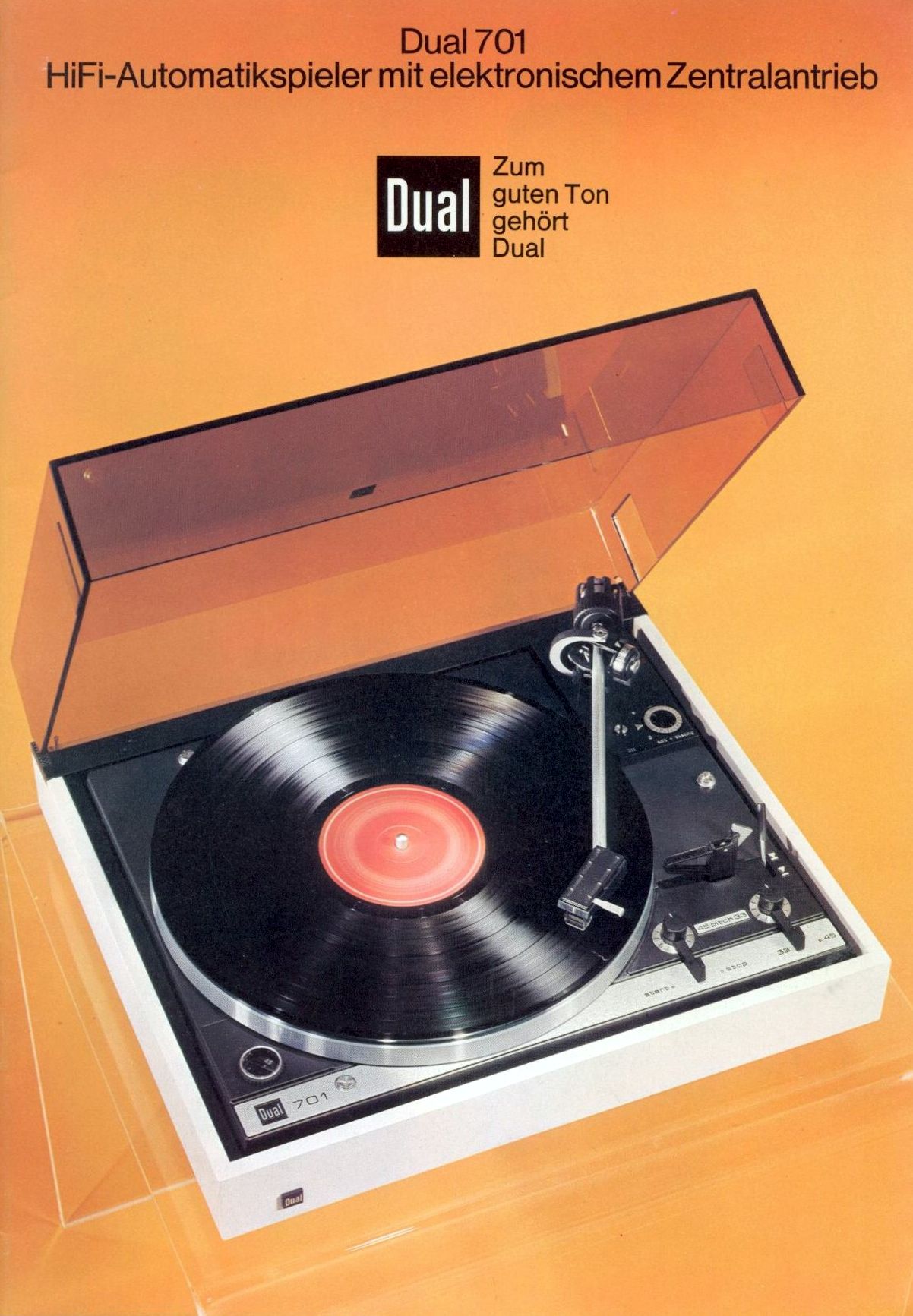Dual CS 70
Data
General
- Manufacturer: Dual
- Model: CS 70 (with automatic chassis Dual 701)
- Type: Record player
- Years of manufacture: 1973 - 1975
- Made in: Germany
- Color: walnut (CS 70) or sanding varnish white (CS 70 W)
- Power consumption: approx. 2.5 W (motor in play mode < 50 mW)
- Dimensions: 420 x 147 x 365 mm
- Weight: 10,9 kg
- Original price approx:
- Walnut version: 998 DM
white version: 1'010 DM
Connections
- Outputs: 1 (5-pin DIN plug)
Technical data
- Drive: electronically controlled direct drive system EDS-1000
- Speed: 33 1/3 & 45 rpm
- Synchronisation fluctuations: ±0,003 % (DIN 45507)
- Rumble noise ratio: unweighted: > 50 dB, weighted: > 70 dB
- Turntable: 304 mm
- Operating mode: fully automatic
- Pitch: ±8 %
- Tonearm: straight arm made of aluminium tube with 222 mm eff. length and 25° 20' offset
Special Features
- Cartridge system: Ortofon M 20 E
Remarks
- Other models in the same series:
- Dual CS 12
- Dual CS 40
- Dual CS 70
- Initially, Dual designated the complete turntable consisting of the walnut console Dual CK 22, the cover Dual CH 6, the turntable Dual 701 and the pickup system Ortofon M 20 E as CS 70. A version in white sanded lacquer could be ordered as Dual CS 70 W.
* With small changes such as the console CK 24 (with better hood holder) and the sampling system Shure V15 Type III, the turntable received the designation Dual CS 701 respectively Dual CS 701 W.
- After the Hanover Fair in 1974, the above-mentioned designations were abandoned and the complete turntable was called Dual 701, regardless of the sampling system.
- The built-in automatic chassis was also sold to industrial customers. In 1974 the turntable was offered by Wega in a more noble designed case as "Wega 3431" at a price of 1100.- DM. The cartridge was also the Ortofon M 20 E.
With the EDS 1000 motor, Dual introduced its first direct-drive turntable. The philosophy was to realize a drive system with as little kinetic energy as possible in order to minimize interference on the pickup system.
Pictures
- Excerpt from brochure: Dual CS-701
